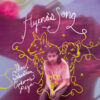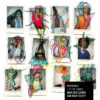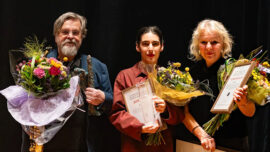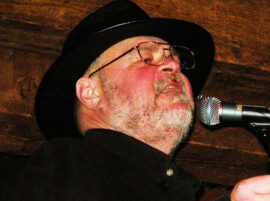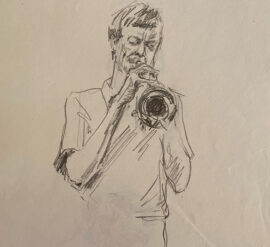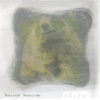
The Swedish, Stockholm-based violinists sisters Eva Lindal and Anna Lindal are well-versed in old and contemporary music. Eva has played in the Swedish Radio Symphony Orchestra while Anna was concertmaster of the Royal Philharmonic Orchestra. Both are acclaimed educators and both have collaborated with theater productions and free improvisations, including with innovative improvisers: Anna with the chamber incarnation of Mats Gustafsson’s Fire! Orchestra («Arrival», Rune Grammofon, 2019) and Eva with double bass player Filip Auguston’s Viva Black trio (with drummer Christopher Cantillo). But «Bäver» – a word-play on the name of Bohemian violinist Heinrich Ignaz Franz Biber, one of the most important composers for the violin – is their first recorded project.
The Lindals tell that although both are deeply rooted in Western art music they wanted to present not only their love to this rich legacy but also their ambivalence towards this tradition. They only decided on possible track-titles that would inspire towards different time periods, composers, artistic role models, and authorships. They used written music that was morphed and deconstructed, interspersed with completely improvised recordings.
The Lindals begin with «Χαλκίδα» (Chalcis/Chalkida, the central town of the Greek island Euboea), a homage to their Greek grandfather’s hometown and the split, grief, and exile in the 20th century Europe. The elegiac, contemplative tone and the Middle-Eastern undercurrents capture magnificently these painful feelings. The following «Kon Do» – possibly a reference to Japanese contemporary composer Jō Kondō, suggests a gentle game of percussive and other bowing techniques and eventually sketches a moving, quiet melody. The title-piece is the Lindals irreverent and mischievous version of Biber’s famous «Passacaglia» – from the Mystery Sonatas completed around 1676 and originally composed for solo violin, somehow encapsulates their life experience as acclaimed performers of classical music who enjoy these days more freedom in their music.
The other pieces explore their shared language and experiences, or, as they call this kind of practice: the possibilities and impossibilities of the violin. «Olivier» is a restless yet emphatic journey in mysterious, resonating tones and overtones. «Hjul/Wheel» turns the violins – the wooden bodies, the strings, and the bows, into an array of advanced percussion instruments, touching, hitting and rubbing all the surfaces. «Skrubb» adopts a more joyful tone in its urgent game battles of extended bowing techniques and voices, sometimes even flirting with cartoonish dialogs and hit-and-run chase. «Knüst» deepens this kind of game of searching and excavating enigmatic, ancient and futurist sounds from the violins, all delivered with an eccentric sense of humor that appeals most to the Lindals, judging by their heartfelt laughs at the end of the piece.
A fascinating journey into the hidden lives of violins and their masters.
Eyal Hareuveni
Eva Lindal (vio, viola), Anna Lindal (vio)



